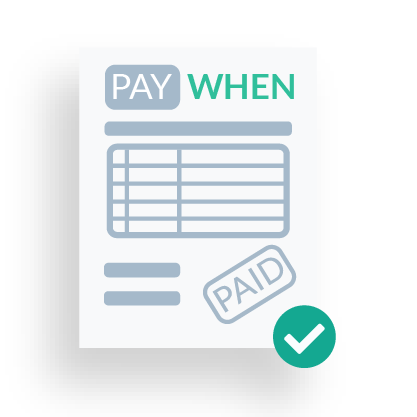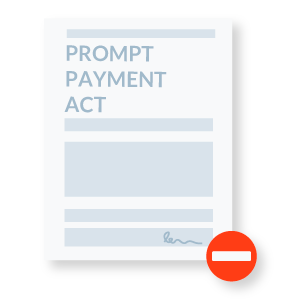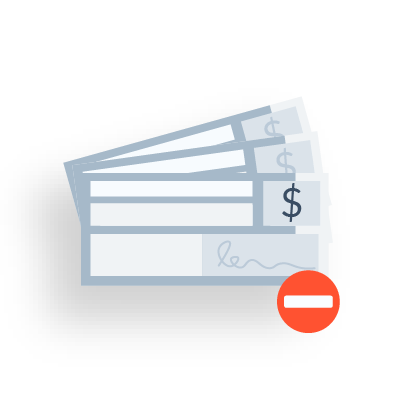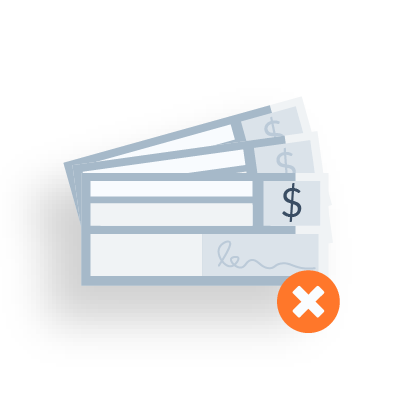
Need contract help? Put a team of legal experts in your corner.


![]()
No-lien clauses have been enforced by Ohio courts.
![]()
Pay if paid clauses can be valid and enforceable in Ohio, provided that the clause sets forth that the clause is a specific "condition precedent" to payment. However, a pay-if-paid clause will not prevent a party from filing a mechanics lien for non-payment.

A pay-when-paid clause is enforceable, but only as a timing mechanism to payment.

The timing of payment to prime contractors will be governed by the terms of the contract. However, the 10-day period for all other down-chain payments may not be modified.

Ohio has some laws about retainage, but the amount of retainage withheld is unregulated. The amount withheld will be governed by the contract between the parties.
![]()
Pay if paid clauses can be valid and enforceable in Ohio, provided that the clause sets forth that the clause is a specific "condition precedent" to payment. However, a pay-if-paid clause will not prevent a party from filing a claim against the payment bond for non-payment.

A pay-when-paid clause is enforceable in Ohio as a timing mechanism, the underlying obligation to pay still remains.

Payments from the public entity must be made in accordance with the OH Prompt Pay Laws; unless otherwise agreed by contract. All other down-chain payments are subject to the 10-day deadline.

Retainage on public projects in Ohio cannot exceed the statutory limit of 8%, and no more retainage may be withheld after 50% completion if satisfactory progress is being made.
A construction contract outlines each party’s obligations, rights, and remedies on a project. But although the language in specific contract clauses is typically negotiable, Ohio has certain rules that govern what the agreement must include — and what is prohibited.
Keep in mind that, while Ohio’s rules for construction contract terms are written into state law, the courts determine how strictly those laws should be interpreted — and those interpretations can change.
On this page, you’ll find resources, legal information, and answers to frequently asked questions about Ohio’s construction contract and payment terms requirements.
While Ohio generally allows construction parties to set the terms of their agreement, there are some laws that regulate specific types of contract provisions. Any contract clause that contradicts the law is invalid and unenforceable.
“No lien” clauses
Ohio statutes do not explicitly prohibit the ability to waive lien rights in a construction contract. However, if the contract also includes a contingent payment clause (discussed below) then the courts have held that the contract cannot also include a “no-lien clause.”
Contingent payment clauses
There are two types of contingent payment clauses: pay-if-paid and pay-when-paid.
Pay-if-paid clauses are enforceable in Ohio, but only to an extent. A valid pay-if-paid clause cannot prevent a contractor from filing a mechanics lien for non-payment, nor can they prevent the collection of late payment interest penalties under the OH Prompt Payment Act. To be effective, they must clearly and unambiguously create a condition precedent to payment. Similarly, on public projects, a clear pay-if-paid clause will be deemed enforceable, but cannot preclude a contractor from making a claim against the payment bond for nonpayment.
Pay-when-paid clauses are similarly enforceable on both private and public projects but only operate as a time-shifting mechanism; requiring payment within a reasonable amount of time.
Payment timing clauses
Ohio’s prompt payment laws on private projects only regulate the timing of payment from contractors to subs and suppliers. Which requires payment within 10 days of receipt of payment from the higher-tiered party. Further, since payments to prime contractors are not regulated, the timing will be governed by the terms of the contract.
On public projects, the public entity is required to make payment within 30 days of receipt of a payment application, unless otherwise agreed between the parties. All other payments, similar to private projects, must be made within 10 days of receipt of payment.
Retainage limits
Ohio does not regulate the amount of retainage that may be withheld on private projects. So the amount withheld, and the timing of its release will be governed by the contract between the parties.
On public construction projects in Ohio, the amount of retainage is capped at no more than 8% of the total contract value. However, when the project reaches 50% completion and satisfactory progress is being made, no more retainage may be withheld for the remainder of the project.
Generally, parties are free to agree to whatever terms they choose. However, there are some specific requirements regarding home construction services contracts valued at $25K or more. Such contracts must be in writing and include specific information. Including a description of the goods and services provided, a total cost estimation, an anticipated start and finish date, a copy of the general liability insurance certificate, and more.
Construction contracts and payment terms are highly regulated in Ohio. It can be confusing to figure out when payments must be made, how to make them, and how to best protect your company from expensive problems. Here are some frequently asked questions that come up with construction contracts and payment terms on Ohio jobs.
Ohio is one of the various states where there is no explicit law prohibiting “no-lien clauses” or the waiver of lien rights in construction contracts. Although disfavored, Ohio courts have upheld no-lien clauses in the past, but they will be strictly construed.
Contractors in Ohio should carefully review their contracts to identify whether there is a no-lien clause (or clauses that may operate in the same fashion) and attempt to negotiate better terms.
No, there is no specific requirement to have a written contract in order to have lien rights in Ohio. Although, it’s always recommended to work under a written contract to establish all your rights and remedies at the outset of the project.
Pay-if-paid clauses
Pay-if-paid clauses are only partially effective in Ohio considering they cannot prevent a party from filing a mechanics lien or a payment bond claim. This is explicitly provided under ORS § 4113.62(E):
No construction contract, agreement, or understanding that makes payment from a contractor to a subcontractor or materials supplier, or from a subcontractor to a materials supplier, lower tier subcontractor, or lower tier materials supplier contingent or conditioned upon receipt of payment from any other person shall prohibit a person from filing a claim to protect rights under sections 153.56, 1311.06, and 1311.26
Pay-when-paid clauses
While pay-if-paid clauses are only partially effective in Ohio and disfavored in many Ohio courts, the Ohio courts may convert the contract to a “pay-when-paid” contract if the language creates a condition precedent to payment is too ambiguous. (Ohio Rev. Code §4113.61)
The code states that any provision of the construction contract, “that waives or precludes liability for delays during the course of a construction contract when the cause of the delay is a proximate result of the owner’s act or failure to act, or that waives any other remedy for a construction contract when the cause of the delay is a proximate result of the owner’s act or failure to act, is void and unenforceable as against public policy.”
Private projects
Payments for Ohio private construction payments are regulated by Ohio Rev. Code §4113.61. The Ohio prompt payment provisions on private projects don’t govern payments from the property owner to the prime contractor. Instead, these payments should be made according to the terms of the contract between parties.
Yet, once the prime contractor has received payment from the owner, they must pass the payment down to their subcontractors and suppliers within 10 days of payment. The same 10-day turnaround applies to payments from 2nd-tier parties to other lower-tiered project participants.
Public projects
All payments on public construction projects in Ohio are regulated by Ohio Rev. Code §126.30. Ohio’s prompt payment law requires payment within 30 days of receipt once the public entity has received a proper request for payment from the prime contractor unless the contract states otherwise.
All other payment deadlines on public works projects are the same deadlines as private projects. Payments must be made within 10 days of the higher-tiered party’s receipt of payment
Private projects
Ohio does not regulate retainage practice on private construction projects. Therefore, retainage will be governed by the terms of the contract.
Public projects
On the other hand, Ohio’s retainage laws do apply to all public work projects contracted by the state, county, township, municipal corporation, school district, political subdivision, or any public board, commission, authority, or instrumentality authorized by the state.
Public works contracts that are unit price or lump sum contracts are subject to 8% of retainage withheld from each progress payment. However, once the project reaches 50% completion, retainage may no longer be withheld from progress payments.
Yes, the Ohio Rev. Code §4722.02: Service contract statute, states the requirements of what shall be included in a home construction contract in Ohio. The law provides that a home construction service supplier may not perform any home construction service in cost that equals or exceeds $25,000 unless the supplier enters into a written home construction services contract with the owner. The contract must include the following agreements and conditions related to the home construction service including:
1. Supplier’s name, physical business address, business number, and taxpayer identification number;
2. Owner’s name, address, and telephone number;
3. Address or location of the property where home construction is to be performed;
4. General description of home construction service, including goods and services that will be furnished;
5. The anticipated date or time period the home construction service is to begin and anticipated date or time period it is to be completed;
6. The total estimated cost of home construction service;
7. Any cost of installation, delivery, or other costs that total estimated cost doesn’t cover;
8. Copy of supplier’s certificate of insurance showing general liability coverage in an amount no less than $250,000; &
9. Dated signatures of owner and supplier
The statute of limitations (deadline) to file a breach of contract claim for nonpayment depends on the type of contract between the parties.
• Written contracts– eight (8) years from the date of the breach (ORS §2305.06)
• Oral contracts– six (6) years from the date of the breach (ORS §2305.07)
We just got a subcontract from a general contractor for plumbing work. In the contract it states that we waive the rights to file any.
We have a contract with someone as their GC. They are not holding retainage on us for this project. Am I able to still hold.
Hello! Our new client in Ohio is proposing NET90 days payment terms after the delivery, we checked that in Ohio due date to file Lien.
Need to file a Ohio mechanics lien? File your mechanics lien with Levelset, the lien experts quickly and easily. Or you can follow the 3 steps below to file a lien yourself with Levelset's free information.